
Edmund Charles Tarbell Giclée Fine Art Prints
1862-1938
American Impressionist Painter
Tarbell was destined to leave his mark on American art not simply through the canvases he produced, but through the ethos he imposed on a generation of students and colleagues. His so-called “Tarbellites” stood as testament to his unwavering commitment to polished draftsmanship - they embraced his penchant for refined technique and genteel subject matter. While Boston’s patrons once strove to tether themselves to European traditions, his steady insistence on quality managed to redirect their loyalties toward domestic talent. Honored repeatedly - including three Thomas B. Clarke Prizes at the National Academy of Design and the Lippincott Prize from the Pennsylvania Academy of the Fine Arts - he found official favor as well. By the time he died in 1938 at his home in New Castle, New Hampshire, his name had become synonymous with a distinct strand of American Impressionism, tinged with Old Master influences and guided by the belief that a painter should marry technical expertise with serene elegance.
Born on 26 April 1862 in West Groton, Massachusetts, he grew up under the care of his grandparents. Even as a child, his skill with pencil and paper was evident - a promising spark that led him first to the Massachusetts Normal School, then toward a formal apprenticeship at the Forbes Lithographic Company. In that setting, he refined his sense of line and precision, talents that he soon took to the Boston Museum School. There he mingled with peers Frank W. Benson and Robert Reid, absorbing the lessons of Otto Grundmann and Frederick Crowninshield, both of whom stressed a thoughtful balance between tradition and the possibilities of a rapidly changing art world. By the time he set sail for Paris in 1884, he had already laid the groundwork for what would become a formidable career.
It was in the ateliers of the Academie Julian that his education stretched beyond mere technicalities. Exposure to instructors such as Gustave Boulanger, Jules-Joseph Lefebvre, Adolphe William Bouguereau, and William Turner Dannat sharpened his attention to anatomical correctness and compositional harmony. Equally formative was his fascination with the Impressionists he encountered in Paris and his quiet pilgrimages to the Louvre, where he pored over canvases by the Old Masters. A subsequent journey through Italy and England rounded out these influences, with European culture clearly imprinting its stamp on his artistic identity. When he returned to the United States in 1886, he stepped into a Boston cultural scene eager for voices that could marry New World sensibilities with European sophistication.
From that point onward, he navigated the demands of a professional artist’s life with strategic acumen. He sought out William Merritt Chase in New York, affiliated himself with the Society of American Artists, and exhibited at the National Academy of Design. To sustain himself, he contributed illustrations to magazines and accepted portrait commissions, soon gaining enough stature to marry Emeline Arnold Souther in 1888 and accept a teaching position at the Boston Museum School. Named head of the painting department in 1890, he set standards that shaped the region’s artistic ethos for more than two decades. Conflicts within the institution led to his resignation in 1913 and subsequent founding of the Guild of Boston Artists. In 1918, he took the directorship of the Corcoran School of Art in Washington, D.C., where he spent several years creating official portraits - including likenesses of President Woodrow Wilson and Marshall Ferdinand Foch - before retiring in 1926 to New Castle. By then, his legacy was already firmly entrenched: a distinctly American vision that, while polite in its subject matter, never wavered in its demand for excellence.
Born on 26 April 1862 in West Groton, Massachusetts, he grew up under the care of his grandparents. Even as a child, his skill with pencil and paper was evident - a promising spark that led him first to the Massachusetts Normal School, then toward a formal apprenticeship at the Forbes Lithographic Company. In that setting, he refined his sense of line and precision, talents that he soon took to the Boston Museum School. There he mingled with peers Frank W. Benson and Robert Reid, absorbing the lessons of Otto Grundmann and Frederick Crowninshield, both of whom stressed a thoughtful balance between tradition and the possibilities of a rapidly changing art world. By the time he set sail for Paris in 1884, he had already laid the groundwork for what would become a formidable career.
It was in the ateliers of the Academie Julian that his education stretched beyond mere technicalities. Exposure to instructors such as Gustave Boulanger, Jules-Joseph Lefebvre, Adolphe William Bouguereau, and William Turner Dannat sharpened his attention to anatomical correctness and compositional harmony. Equally formative was his fascination with the Impressionists he encountered in Paris and his quiet pilgrimages to the Louvre, where he pored over canvases by the Old Masters. A subsequent journey through Italy and England rounded out these influences, with European culture clearly imprinting its stamp on his artistic identity. When he returned to the United States in 1886, he stepped into a Boston cultural scene eager for voices that could marry New World sensibilities with European sophistication.
From that point onward, he navigated the demands of a professional artist’s life with strategic acumen. He sought out William Merritt Chase in New York, affiliated himself with the Society of American Artists, and exhibited at the National Academy of Design. To sustain himself, he contributed illustrations to magazines and accepted portrait commissions, soon gaining enough stature to marry Emeline Arnold Souther in 1888 and accept a teaching position at the Boston Museum School. Named head of the painting department in 1890, he set standards that shaped the region’s artistic ethos for more than two decades. Conflicts within the institution led to his resignation in 1913 and subsequent founding of the Guild of Boston Artists. In 1918, he took the directorship of the Corcoran School of Art in Washington, D.C., where he spent several years creating official portraits - including likenesses of President Woodrow Wilson and Marshall Ferdinand Foch - before retiring in 1926 to New Castle. By then, his legacy was already firmly entrenched: a distinctly American vision that, while polite in its subject matter, never wavered in its demand for excellence.
22 Edmund Charles Tarbell Artworks
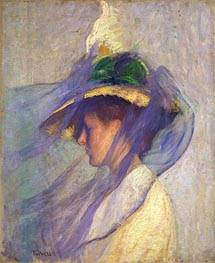
Giclée Canvas Print
$76.47
$76.47
SKU: 8491-TEC
Edmund Charles Tarbell
Original Size:73.7 x 61 cm
Fine Arts Museums of San Francisco, California, USA
Edmund Charles Tarbell
Original Size:73.7 x 61 cm
Fine Arts Museums of San Francisco, California, USA
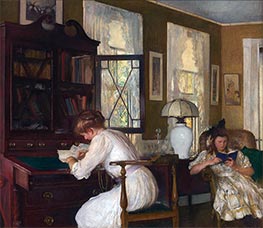
Giclée Canvas Print
$81.42
$81.42
SKU: 18066-TEC
Edmund Charles Tarbell
Original Size:71.4 x 81.4 cm
National Gallery of Art, Washington, USA
Edmund Charles Tarbell
Original Size:71.4 x 81.4 cm
National Gallery of Art, Washington, USA
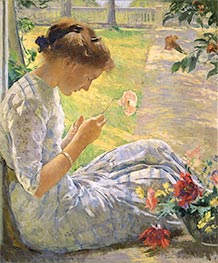
Giclée Canvas Print
$77.67
$77.67
SKU: 18076-TEC
Edmund Charles Tarbell
Original Size:85 x 69.8 cm
Currier Museum of Art, New Hampshire, USA
Edmund Charles Tarbell
Original Size:85 x 69.8 cm
Currier Museum of Art, New Hampshire, USA
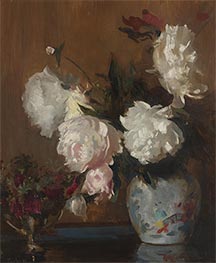
Giclée Canvas Print
$76.65
$76.65
SKU: 18056-TEC
Edmund Charles Tarbell
Original Size:76.2 x 63.5 cm
Private Collection
Edmund Charles Tarbell
Original Size:76.2 x 63.5 cm
Private Collection
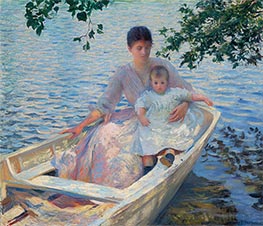
Giclée Canvas Print
$80.39
$80.39
SKU: 18060-TEC
Edmund Charles Tarbell
Original Size:76.5 x 89 cm
Boston Museum of Fine Arts, Massachusetts, USA
Edmund Charles Tarbell
Original Size:76.5 x 89 cm
Boston Museum of Fine Arts, Massachusetts, USA
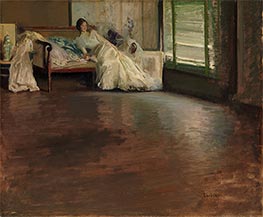
Giclée Canvas Print
$77.85
$77.85
SKU: 18059-TEC
Edmund Charles Tarbell
Original Size:63.5 x 76.5 cm
Metropolitan Museum of Art, New York, USA
Edmund Charles Tarbell
Original Size:63.5 x 76.5 cm
Metropolitan Museum of Art, New York, USA
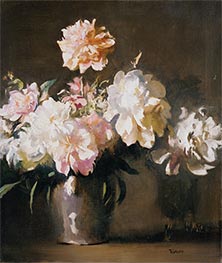
Giclée Canvas Print
$79.03
$79.03
SKU: 18055-TEC
Edmund Charles Tarbell
Original Size:63.8 x 53.8 cm
Metropolitan Museum of Art, New York, USA
Edmund Charles Tarbell
Original Size:63.8 x 53.8 cm
Metropolitan Museum of Art, New York, USA
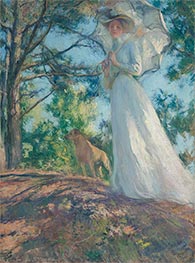
Giclée Canvas Print
$69.67
$69.67
SKU: 18073-TEC
Edmund Charles Tarbell
Original Size:106 x 78 cm
Cleveland Museum of Art, Ohio, USA
Edmund Charles Tarbell
Original Size:106 x 78 cm
Cleveland Museum of Art, Ohio, USA
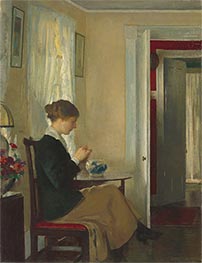
Giclée Canvas Print
$72.05
$72.05
SKU: 18067-TEC
Edmund Charles Tarbell
Original Size:66.6 x 51.4 cm
National Gallery of Art, Washington, USA
Edmund Charles Tarbell
Original Size:66.6 x 51.4 cm
National Gallery of Art, Washington, USA
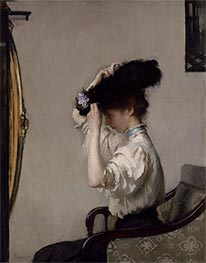
Giclée Canvas Print
$73.59
$73.59
SKU: 18077-TEC
Edmund Charles Tarbell
Original Size:115.5 x 90.2 cm
Indianapolis Museum of Art, Indiana, USA
Edmund Charles Tarbell
Original Size:115.5 x 90.2 cm
Indianapolis Museum of Art, Indiana, USA
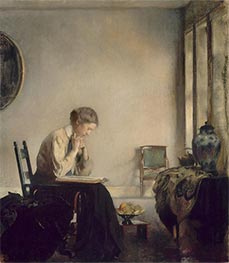
Giclée Canvas Print
$67.51
$67.51
SKU: 18061-TEC
Edmund Charles Tarbell
Original Size:82 x 72.4 cm
Boston Museum of Fine Arts, Massachusetts, USA
Edmund Charles Tarbell
Original Size:82 x 72.4 cm
Boston Museum of Fine Arts, Massachusetts, USA
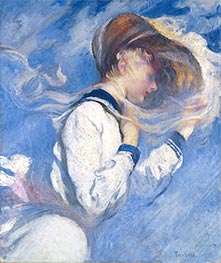
Giclée Canvas Print
$78.53
$78.53
SKU: 18075-TEC
Edmund Charles Tarbell
Original Size:76.5 x 63.8 cm
Currier Museum of Art, New Hampshire, USA
Edmund Charles Tarbell
Original Size:76.5 x 63.8 cm
Currier Museum of Art, New Hampshire, USA
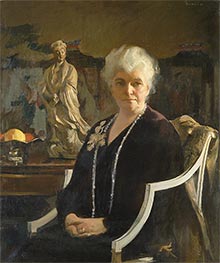
Giclée Canvas Print
$78.53
$78.53
SKU: 18069-TEC
Edmund Charles Tarbell
Original Size:114.7 x 97 cm
Smithsonian American Art Museum, Washington, USA
Edmund Charles Tarbell
Original Size:114.7 x 97 cm
Smithsonian American Art Museum, Washington, USA
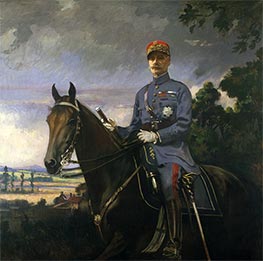
Giclée Canvas Print
$92.83
$92.83
SKU: 18071-TEC
Edmund Charles Tarbell
Original Size:198.5 x 198.7 cm
Smithsonian American Art Museum, Washington, USA
Edmund Charles Tarbell
Original Size:198.5 x 198.7 cm
Smithsonian American Art Museum, Washington, USA
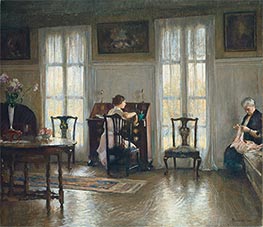
Giclée Canvas Print
$80.73
$80.73
SKU: 18068-TEC
Edmund Charles Tarbell
Original Size:112 x 127.5 cm
National Gallery of Art, Washington, USA
Edmund Charles Tarbell
Original Size:112 x 127.5 cm
National Gallery of Art, Washington, USA
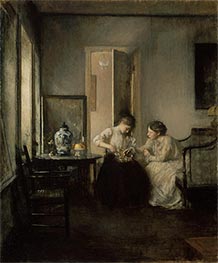
Giclée Canvas Print
$77.67
$77.67
SKU: 18064-TEC
Edmund Charles Tarbell
Original Size:77 x 64 cm
Boston Museum of Fine Arts, Massachusetts, USA
Edmund Charles Tarbell
Original Size:77 x 64 cm
Boston Museum of Fine Arts, Massachusetts, USA
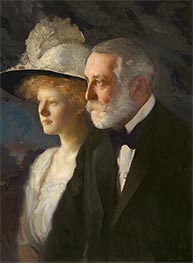
Giclée Canvas Print
$68.65
$68.65
SKU: 18078-TEC
Edmund Charles Tarbell
Original Size:78.7 x 59 cm
Smithsonian American Art Museum, Washington, USA
Edmund Charles Tarbell
Original Size:78.7 x 59 cm
Smithsonian American Art Museum, Washington, USA
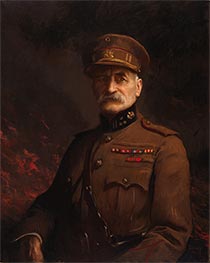
Giclée Canvas Print
$74.95
$74.95
SKU: 18072-TEC
Edmund Charles Tarbell
Original Size:91.8 x 74 cm
Smithsonian American Art Museum, Washington, USA
Edmund Charles Tarbell
Original Size:91.8 x 74 cm
Smithsonian American Art Museum, Washington, USA
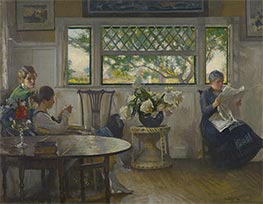
Giclée Canvas Print
$72.57
$72.57
SKU: 18074-TEC
Edmund Charles Tarbell
Original Size:71.5 x 91.5 cm
Colby College Museum of Art, Maine, USA
Edmund Charles Tarbell
Original Size:71.5 x 91.5 cm
Colby College Museum of Art, Maine, USA
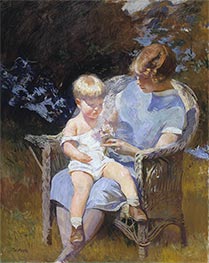
Giclée Canvas Print
$74.43
$74.43
SKU: 18070-TEC
Edmund Charles Tarbell
Original Size:127.5 x 102.2 cm
Smithsonian American Art Museum, Washington, USA
Edmund Charles Tarbell
Original Size:127.5 x 102.2 cm
Smithsonian American Art Museum, Washington, USA
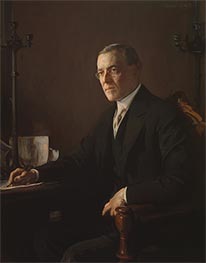
Giclée Canvas Print
$73.25
$73.25
SKU: 18079-TEC
Edmund Charles Tarbell
Original Size:116.8 x 91.4 cm
Smithsonian American Art Museum, Washington, USA
Edmund Charles Tarbell
Original Size:116.8 x 91.4 cm
Smithsonian American Art Museum, Washington, USA
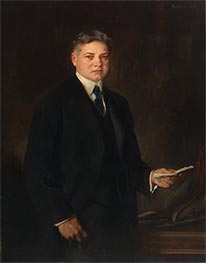
Giclée Canvas Print
$73.25
$73.25
SKU: 18080-TEC
Edmund Charles Tarbell
Original Size:117 x 91.5 cm
Smithsonian American Art Museum, Washington, USA
Edmund Charles Tarbell
Original Size:117 x 91.5 cm
Smithsonian American Art Museum, Washington, USA